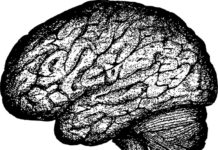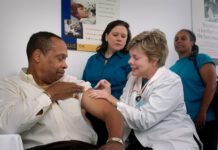Non-Distressed Psychosis-Like Experiences Not Linked to Serious Mental Illness
Research from the University of Maryland finds that "Although 'psychosis-like experiences' (PLEs) may reflect elevated risk for onset of serious mental illness," further examination...
Researchers Challenge Evidence for Antidepressants in Youth
Researchers shed light on the precarious nature of evidence from efficacy trials of antidepressant medication to treat symptoms of major depressive disorder in children and adolescents.
David Healy Critiques Gibbons’ Reanalysis of Antidepressants and Suicide
David Healy critiques the reanalysis by Robert Gibbons of antidepressants and suicidality in children and adolescents that was reported on this page yesterday. He...
Findings Linking Depression to Abnormal Brain Activity Questioned
Meta-analyses fail to replicate findings linking abnormal brain activity to depression.
Why (And How) Do We Long for Utopia?
From Psychology Today: A new wave of positive psychology scholarship emphasizes the dialectal nature of wellbeing, arguing that well-being does not only comprise happy or...
Opioid Conflict-of-Interest Reveals Big Pharma’s Ties to Doctors
From CBC News: A McMaster University committee has been assigned to develop new opioid-prescribing guidelines for Canada's doctors. While the rules explicitly prohibited anyone with ties...
Are Drug Side Effects Driving Depression Rates?
A new study finds that more than a third of Americans are taking prescription drugs that can cause depressive symptoms as a side-effect.
Mental Health Nurses Do Not Routinely Assess for Effects of Antipsychotic Medications
Researchers believe that side-effect monitoring is critical because of the increase in the use of antipsychotics
Research Shows Mindfulness can Decrease Anxiety
A new study explores the impact of a Mindfulness-Based intervention on stress-related biomarkers in individuals diagnosed with Generalized Anxiety Disorder (GAD).
“As Opioid Deaths Reach Record High, Drug Industry Resists Efforts to Rein in Prescriptions”
“In 2014, the number of people who died from drug overdoses in the United States reached 47,055 — an all-time high, according to a disturbing report published Friday by the Centers for Disease Control and Prevention (CDC),” but “the effort to get physicians to curb their prescribing of these drugs may be faltering amid stiff resistance from drugmakers, industry-funded groups and, now, even other public health officials.”
Scant Evidence for Combining Antipsychotics
Researchers in Barcelona, Spain retrospectively reviewed the use of antipsychotics in 117,811 patients, of whom 9,855 were given combinations of antipsychotics and 13,763 were...
Psych Patients Who Resist Stigma Do Better
A new study in press in the Journal of Schizophrenia Research finds that patients who actively resist the negative stigma associated with mental health...
International Society Removes “Schizophrenia” From Its Name
Calling "schizophrenia" an unscientific and stigmatizing construct - with little or no reliability or validity - that implies people with the diagnosis have an irreversible brain...
Bad-Science Warning: The “Minnesota Study of Twins Reared Apart” (MISTRA)
The huge impact of the MISTRA, in addition to the harmful and regressive social and political policy implications that flow from it, necessitates a detailed analysis of the “science” behind the study’s major claims and conclusions. Here I offer a new critique of this famous and influential “separated twin study.”
The Secretive Family Making Billions From the Opioid Crisis
In this piece for Esquire, Christopher Glazek profiles the Sacklers, the family that owns the pharmaceutical company that manufactures OxyContin. He investigates how the Sacklers' marketing...
Review Finds Link Between Recession and Mental Health Issues
A literature review published in BMC Public Health by researchers from Portugal and the Czech Republic summarizes results from 101 studies investigating the effect...
Childhood Adversity Changes Stress-Related Gene Expression
Researchers in Rhode Island and New Hampshire examined 99 healthy adults for changes related to stress hormones, and asked about their childhood attachment experiences....
Only One in Seven Authors Disclose Conflict of Interest
Researchers from Harvard and the University of Melbourne identified physicians and scientists who had financial relationships with pharmaceutical companies named as defendants in U.S....
Antipsychotics Aren’t Helpful to Children
Researchers from London, writing in European Psychiatry, reviewed "all RCTs involving children and young people with a diagnosis of childhood onset schizophrenia comparing any...
Using Breathing-Based Meditation to Treat Depression
Study reveals data suggesting yogic breathing may be helpful in treating depression for patients who have not respond to antidepressants
“Closed Thinking: Without Scientific Competition and Open Debate, Much Psychology Research Goes Nowhere”
Science News offers an excellent review of the the perils and pitfalls of the scientific method as it is practiced in psychology today, concluding...
Psychological Effects of Austerity Policies and Poverty Over-Medicalized, Report Finds
Recent report underscores troubling trends cutting across poverty, austerity reform, and mental health narratives in health care settings.
Former NEJM Editors Attack Journal’s “Flawed” and “Rambling” Conflict-of-interest Articles
-Three former editors of the New England Journal of Medicine criticize the NEJM for its recent publication of a series of articles downplaying conflicts of interest.
Abbott to Pay $1.6 Billion for “Elder Abuse”, Off-Label Marketing
Abbott Laboratories has pled guilty to civil and criminal charges of illegally marketing Depakote for the control of agitation and aggression in elderly patients...
Ethical Failings in Experimental Drug Safety Trials
Leading human subjects ethics researcher questions exploitation of uninsured minorities in experimental drug trials.






















